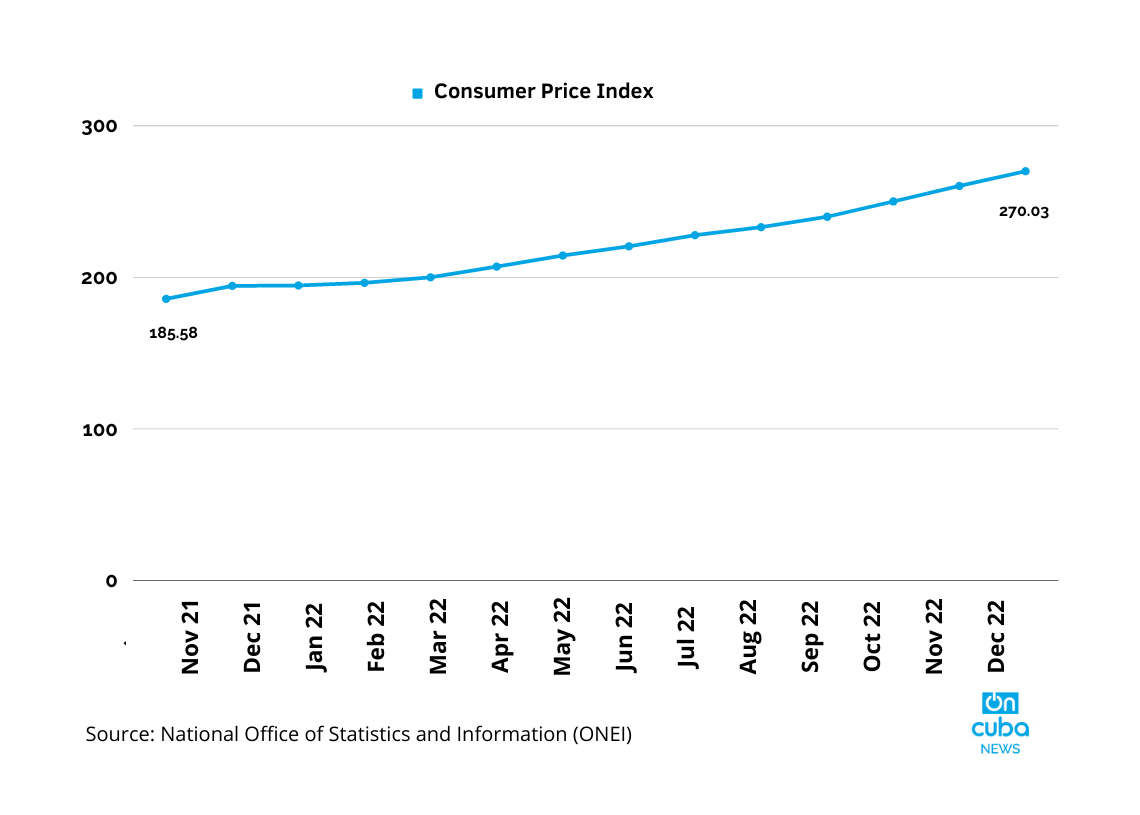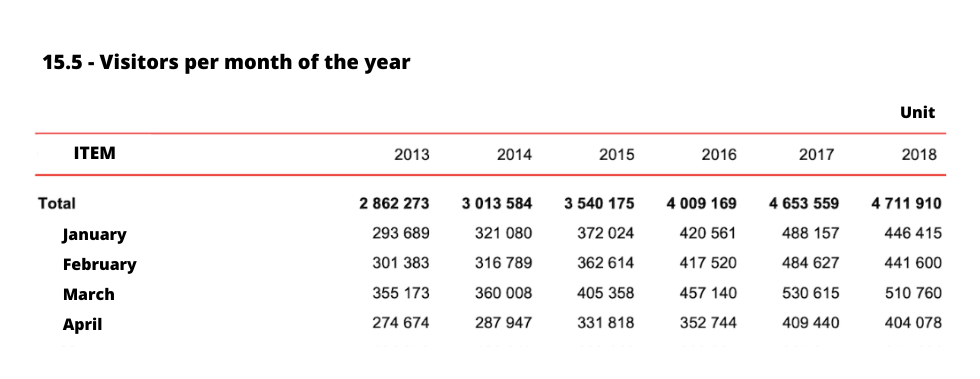A good tourist January, although not the necessary one
HAVANA, Feb. 12th A new hotel in Havana has opened its doors to the public. A few days ago, that piece of news competed with three others that somehow caught my attention about how difficult it is for those who work in the hospitality sector in Cuba today, whether they do it from the state sector or from the private sector.
The first one highlighted the difficulties that the only tissue paper factory that exists in Cuba — to produce toilet paper and napkins — faces today to meet the demands of both the market in general and the tourist market. By the way, this is a joint venture: Prosa.
The second of these news items were ETECSA’s explanation of the poor quality of the connection due to insufficient infrastructure and its hope that after the Arimao underwater cable came into operation the situation would improve substantially.
The third piece of news referred to those terrifying figures of increase in inflation that Cubadebate published on the evolution of the Consumer Price Index, based on data from ONEI:
 Let’s use the tissue deficit problem as a sample button. Without it, it is difficult to achieve the minimum comfort that any tourist, national or foreign, aspires to enjoy in any hotel or rental house. It is difficult to explain to a tourist that there is no toilet paper or napkins.
Let’s use the tissue deficit problem as a sample button. Without it, it is difficult to achieve the minimum comfort that any tourist, national or foreign, aspires to enjoy in any hotel or rental house. It is difficult to explain to a tourist that there is no toilet paper or napkins.
It is even more difficult than explaining that in a country that enjoys the blessed privilege of being surrounded by the sea, there is no fresh fish, something to which Cubans have become accustomed. The same could be said of other products, especially food, including fruits and vegetables, natural juices, etc.
The same happens with the Internet connection and its quality. Having the guarantee of access to the network with the quality of their countries of origin seems to be part of a basic service that, if not available, makes a difference for the visitor who arrives in Cuba and who expects a service similar to that of other destinations in the Caribbean and even to some very intricate and remote areas of the world geography.
Prices and their sustained increase are another of those great obstacles for those who have tied their lives to the tourism sector. This dynamic means that the cost sheets of the products often exceed the budget for the cost per tourist, before which the only thing left is not to offer a group of products whose prices cannot be accommodated in that sheet.
If we add to this the existence of multiple exchange rates and multiple currencies (Cuban peso, freely convertible currency) then estimating costs and profits become a matter of greater complexity. The finances of tourism in these conditions can hardly orient adequately the decisions in this sector.
What I want to say once again is that there is no point in building and inaugurating new hotels as part of a strategy to compete with other Caribbean destinations if a decisive part of what has a direct impact on the competitiveness of our tourism industry is beyond the reach of hotel companies and authorities in the sector.
To this should be added the systematic drainage of a qualified labor force in all the jobs that a hotel requires. The tourism sector, like other sectors of the country, suffers from this scourge and pays for it in the quality — or lack of quality — of the service.
It is true that we still have a population with a high level of education, but this does not guarantee at all that we will be able to attract workers with the appropriate skills to be employed in the tourism sector. Training takes time, is an expensive investment and payback takes time.
The Cuban tourism sector has also lost that attraction that it used to exert on the labor force, partly because other sectors compete for it and pay better; partly also because the Reorganization Task and the resulting inflation have reduced the salary attractiveness that previously existed. The migratory exodus abroad is a wound from which this sector bleeds, as much as any other.
The growth forecast of 3% of GDP for 2023 is based, as a key sector, on tourism. Those 3.5 million tourists that Cuba is forecast to receive are expected to generate higher revenues than in 2022.
It is true that the imported component of the hotel cost structure will mean that net income may even be lower than expected; however, welcome to the visitors.
Despite everything, which I include extemporaneous regulations that should be eliminated immediately, tourism is growing.
The fourth relevant news of these days is that in the month of January, 246,000 visitors arrived in the country. Compared to 86,424 in January 2021, this represents a growth of 284.6%.
Undoubtedly very good, although if one examines the monthly behavior of the arrival of tourists in the years in which similar arrival figures were reached, then there is no doubt. If this rate is maintained, will it be possible to reach the 3.5 million forecast?

What the data shows is that to reach more than 3 million tourists in the year, the behavior of the month of January is decisive and arrivals of over 300,000 tourists are required.
The figure reached puts a red signal in the sector as it forces it to grow significantly in February, March and April to compensate for what was obtained in January. In the years in which less than 300,000 tourists were received in the first month of the year, the annual arrival did not exceed three million.
It could also happen that this year’s performance does not follow the historical one, but so far nothing supports this idea.
Once again the task of tourism is great, it will have to fight against external factors against which it can do little — not only the blockade; against old limitations from which it has been difficult to get rid; against internal regulations that limit its opportunities; against a macroeconomic environment that does not help it, especially monetary and exchange distortion; against the loss of competent personnel and the difficulties to replace them.
It will have to find in those new actors in the economy, which they still look at askance, what the state business system does not provide, and, above all, it will have to fight a great battle against its own ghosts.
The task is great, as hard as that of the first years of its revival back in the late 1980s. But today times are very different.